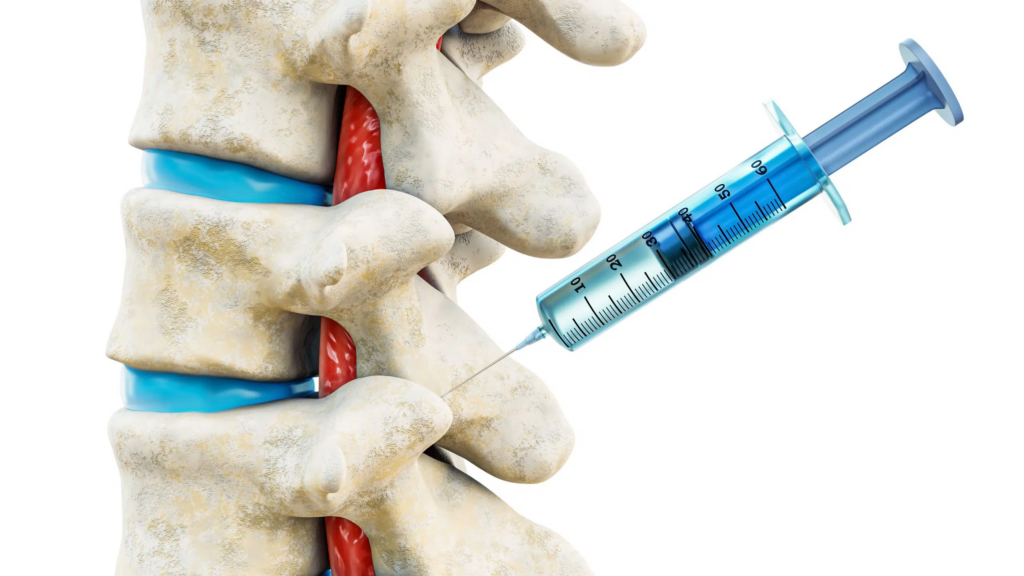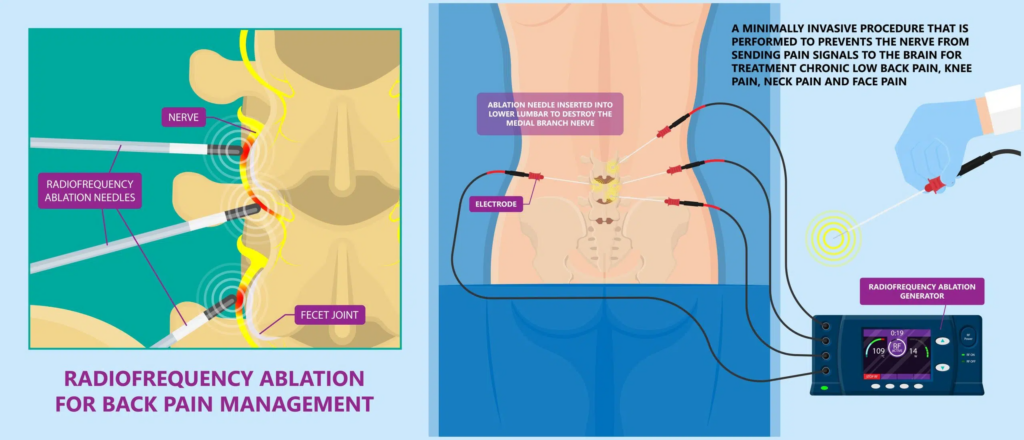Once you’ve been diagnosed with a spinal injury, degenerative wear and tear, or joint problem you may be overwhelmed with worries about what comes next. In some instances, it’s clear that the surgical path is the only hope for true pain management. For many patients, however, there are less drastic options available.
Doctors will traditionally allow the injured area to heal and inflammation to subside with the help of medication, physical therapy, chiropractic visits, or even simple rest. When those non-invasive methods prove unsuccessful, it doesn’t necessarily make surgery a foregone conclusion. You may find relief with the help of regular injections. For some patients, it’s a form of treatment that can lead to recovery without surgery or the risk of addiction to pain-reducing medications.
What Type Of Treatments Exist?
Most spinal injections use a numbing agent such as lidocaine or a steroid with anti-inflammatory properties. A steroid injection is often successful in treating pain caused by inflammation of damaged tissue, nerves, or an injury needing recovery. They’re usually delivered as an epidural injection, which many associate with childbirth, but are highly effective at calming and blocking overactive nerve signals throughout the body. These injections also repress the body’s immune system, making them successful in managing back pain caused by chronic auto-immune illnesses or joint pain due to arthritis.
Injections Offered at Schell Spinal:
Therapeutic: Patient lies on a procedure table, x-ray guidance is used to confirm injection site. An Anesthetic (lidociane) and anti-inflammatory medication (steroid) is injected into the joint.
- Cervical/Thoracic/Lumbar Medial Branch Block (Facet)
- Patient lies on a procedure table, x-ray guidance is used to confirm injection site.
- An Anesthetic (lidociane) and/or an anti-inflammatory medication (steroid) is injected into the joint.
- Following the procedure you will be asked to perform activates that would usually provoke pain to determine if the injection helped.
- Occipital Injection
- Performed for chronic headaches
- Sacroiliac Joint Injection
- Diagnostic: Patient lies on a procedure table, x-ray guidance is used to confirm injection site. An Anesthetic (lidociane) is injected into the joint. Following the procedure you will be asked to perform activates that would usually provoke pain to determine if the injection helped.
- Therapeutic: Patient lies on a procedure table, x-ray guidance is used to confirm injection site. An Anesthetic (lidociane) and anti-inflammatory medication (steroid) is injected into the joint.

What Is Radio Frequency Ablation?
If you’re seeking an alternative to surgery, but a lifetime of pain injection after pain injection isn’t a practical solution, your doctor might suggest radiofrequency ablation. Also known as rhizotomy, this procedure is a semi-permanent solution to chronic pain. It comes with its own risks and benefits, and should be carefully considered on a case-by-case basis.
In this procedure, the nerve causing chronic pain is purposely given a heat-based lesion that blocks sensation. Unlike a steroid injection or pain injection, the results are often longer lasting than a simple injection.

Will A Pain Injection Cure Me?
Unfortunately, a pain injection is a type of pain management, not a cure. Upon receiving any spinal injection, you’ll need to rest for a day or two. You may begin to feel relief within 24 hours, though more often, you’re likely to feel a slower easing of symptoms over 2 to 4 weeks.
While not a cure, it can help you cope with pain well enough that simple household tasks become more manageable. It may also make physical therapy and rehabilitation of the injured area much easier. If there is no way for a spinal injury to heal without surgery, your doctor will make you aware of that before beginning any surgical treatment alternatives.
Start A Therapeutic Regimen With Schell Spinal
Chronic back, neck, and sacroiliac pain plague millions of Americans, so if you’ve been suffering in silence, it’s time to speak up. There are a number of treatments available, but early diagnosis and proper therapy are key to rehabilitation. The solutions you need start with a phone call to Schell Spinal. Our highly trained doctors and support staff will help you make the best decisions about your care.